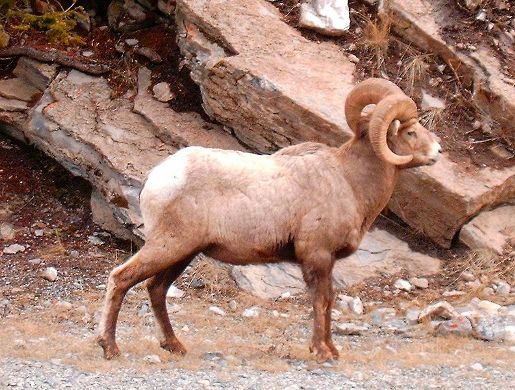Interactions
Vertigo modesta serves as an intermediate host for a parasite found in bighorn sheep.
The lungworms Protostrongylus stilesi and Protostrongylus rushi are endemic inhabitants of bighorn sheep lungs, and high prevalence of these parasites in bighorn populations is common. These nematode parasites can do a great deal of damage on their host, and transmission is most prevalent in areas in which the habitats of the bighorn sheep and intermediate terrestrial gastropod hosts overlap (Rogerseon et al., 2008). Vertigo modesta is one of these terrestrial gastropods that serve as an intermediate host in the transmission of lungworms to bighorn sheep in Alberta, Canada (Martin, 2000). Lungworm transmission likely occurs in riparian habitats due to abundant gastropods, presence of infected gastropods, and reliance by bighorn sheep on few water sources (Rogerson et al., 2008). The grassy openings found on Alberta, Canada's mountain ranges show to be prime habitats for lungworm transmission, especially in the fall and spring seasons. This increased time of transmission is due to the plentiful amounts of gastropod intermediate hosts at the time, as well as the migratory patterns of the bighorn sheep (Rogerson et al., 2008).
